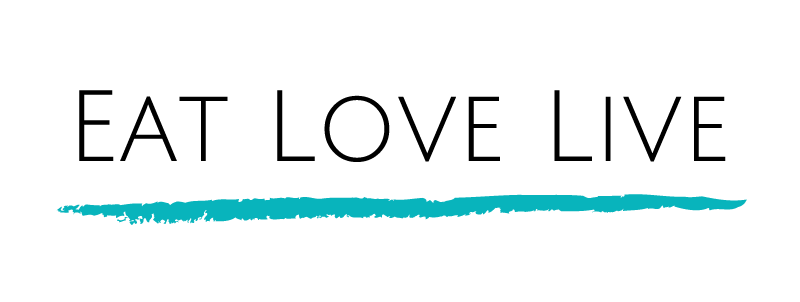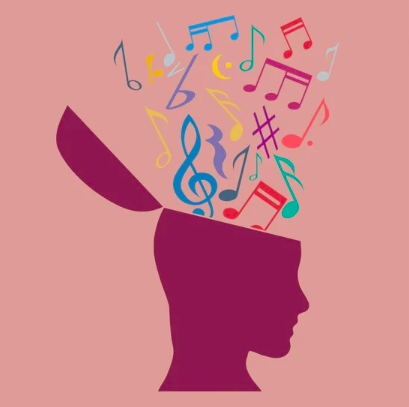What is music therapy? Recent music therapy graduate, Madeleine Chiodo, introduces us to the therapeutic modality she's shared with Eat Love Live clients in 2023!
My name is Madeleine and I joined the lovely staff at Eat Love Live in 2023 to provide clients with a Music Therapy program whilst completing my studies.
Music therapy (MT) is a creative therapy that has been used for millennia to improve human well-being. Music was originally utilised as a therapeutic intervention in mental health facilities in the late 1800s, with the goal of relaxing and engaging patients. Since then, several programs have been formed in a variety of professional institutions, including hospitals, schools, mental health facilities, rehabilitation centres, and so on, and it is a strong instrument for healing, self-expression, and personal growth. Other advantages of MT include the ability to control your emotions, reduce stress, and better understand yourself helping you feel more confident. MT may be done anywhere and with anyone, even if you don't own any instruments or have any musical knowledge!
Here is a synopsis into some of the interventions that I will be offering at Eat Love Live:
Songwriting/Lyric Substitution
We will work together to write lyrics and melodies that are very personal to you, encouraging emotional release, self-discovery, and empowerment. Our emphasis will be on creating a safe environment for creative expression, developing coping skills, and establishing a sense of control. Songwriting, regardless of musical experience, offers a tremendous chance to connect with yourself and others, revealing the transformational power of music and words. If writing melodies is difficult for you, we can adapt our words to a pre-existing song that has special importance for you.
Lyrical Analysis
We may unearth hidden meanings, explore emotions, and obtain useful insights into your experiences by analysing the lyrics of songs that contain personal value. We will establish a safe environment for contemplation, self-expression, and growth via this process. Lyric analysis enables us to connect profoundly with the words and messages expressed in music, therefore unlocking its healing potential. The tremendous impact of lyric analysis rests in its capacity to peel back the layers of meaning, revealing the healing power of music and its profound link to our inner world.
Music Listening Journals
This is an important tool in our sessions since they allow for reflection and introspection. Music listening journals, like lyric analysis, allow us to dive deeply into the emotional landscape of songs that touch with you. We may get vital insights and knowledge by listening carefully and writing down your ideas, feelings, and experiences. This application allows you to engage with the complexities of melodies, harmonies, and rhythms, allowing you to explore the evocative power of music beyond lyrics. It allows you to immerse yourself in the complete auditory experience, capturing the essence of how different components effect your mood, emotions, and general well-being.
Music-assisted relaxation
We can create a secure and serene atmosphere for relaxation and stress reduction by utilising the soothing and relaxing functions of music. We will bring you to a state of profound relaxation with carefully selected melodies, rhythms, and harmonies, producing a sense of inner peace and well-being. Relaxation with music is a peaceful approach to unwind, enabling you to relieve tension, calm the mind, and find refuge in the healing vibrations of sound. This therapeutic method embraces music's transforming capacity to calm the soul and restore equilibrium to your mind, body, and spirit.
Playlist creation
We may build a musical journey that reflects the many themes and stages of your eating disorder (ED) recovery by creating a collection of songs. From songs that encapsulate the journey's obstacles and emotions to those that encourage strength, resilience, and self-acceptance, the playlist will be a tool for reflection, empowerment, and growth. The playlist will create a supportive and uplifting soundtrack that will accompany you down the journey to healing by weaving together melodies and lyrics that resonate with your particular story. Together, we can capture the spirit of your ED journey, celebrate milestones, and communicate with you.
Vocal psychotherapy/Therapeutic singing
Vocal psychotherapy explores the therapeutic potential of the voice, using it as a tool for emotional expression and release. We may reach deeper levels of the psyche through vocal psychotherapy, articulate feelings that are difficult to verbalise, and stimulate personal growth. Therapeutic singing, on the other hand, entails the deliberate use of singing techniques in order to enhance well-being and self-discovery. Therapeutic singing allows us to link mind, body, and spirit in a harmonious way through engaging in vocal exercises, vocalisations, and singing familiar or original compositions. Individuals may embrace their distinctive voices, relieve emotional tensions, and tap into the transforming and cathartic powers of vocal expression via vocal psychotherapy and therapeutic singing. These techniques provide effective ways to investigate and incorporate the healing potential of the voice into our journey.
Chanting
We can cultivate a contemplative and concentrated state of mind by participating in repetitive vocalisations. Chanting enables us to transcend our daily thoughts, connect with our inner serenity, and build awareness. We may co-create and share our own original phrases, generating a stronger sense of togetherness and safety within the therapeutic space, regardless of your musical background. This cooperative method encourages personal development, emotional expression, and lasting connections. We will begin on an exploratory trip together, utilising chanting as a tool to develop well-being, spiritual growth, and true self-expression.
So there you have it - an exciting dive into some unique interventions that we will utilise at EatLoveLive. I hope this blog article has helped you navigate the vast and lovely field of MT and what it can offer. I look forward to meeting you soon!
Madeleine
References:
Austin, D. (2009). Vocal Holding Techniques. In The theory and practice of vocal psychotherapy: Songs of the self (pp. 146–157). Chapter, Jessica Kingsley Publishers.
Edwards, J., & Loth, H. (2015). Music Therapy with People Who Have Eating Disorders. In The Oxford Handbook of Music therapy (pp. 299–312). chapter, Oxford University Press.
Grocke, D., & Wigram, T. (2007a). Receptive Methods and Relaxation for Adults. In Receptive methods in music therapy: Techniques and clinical applications for music therapy clinicians, educators and students (pp. 89–123). chapter, Jessica Kingsley.
Grocke, D., & Wigram, T. (2007b). Song Lyric Discussion, Reminiscence and Life Review. In Receptive methods in music therapy: Techniques and clinical applications for music therapy clinicians, educators and students (pp. 156–178). chapter, Jessica Kingsley.
Grocke, D., & Wigram, T. (2007c). Receptive Music Therapy and Art Media. In Receptive methods in music therapy: Techniques and clinical applications for music therapy clinicians, educators and students (pp. 195-213). chapter, Jessica Kingsley.
Heiderscheit, A., & Murphy, K. M. (2021). Trauma-informed care in music therapy: Principles, guidelines, and a clinical case illustration. Music Therapy Perspectives, 39(2), 142–151.
Hilliard, R. E. (2001). The use of cognitive-behavioral music therapy in the treatment of women with eating disorders. Music Therapy Perspectives, 19(2), 109–113. https://doi.org/10.1093/mtp/19.2.109
Trondalen, G. (2003). “Self–Listening” in Music Therapy with a Young Woman Suffering from Anorexia Nervosa. Nordic Journal of Music Therapy, 12(1), 3–17. https://doi.org/10.1080/08098130309478069
Wheeler, B. L., Davis, W., & Hadley, S. (2017). A History of Music Therapy. In Music therapy handbook (pp. 17–28). chapter, The Guilford Press.

